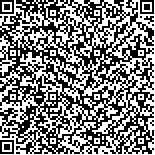| 摘要: |
| 利用酸溶法和酶溶法分离纯化绿鳍马面鲀(Navodon septentrionalis)鱼皮酸溶性胶原蛋白(ASC)和酶溶性胶原蛋白(PSC),并对所得的ASC和PSC的氨基酸组成、亚基组成、红外光谱(FTIR)、黏度和热变性温度,以及溶解度等性质进行系统分析。研究结果表明:马面鲀鱼皮酸溶性胶原蛋白(ASC)和酶溶性胶原蛋白(PSC)的得率分别为0.87%±0.15%和9.52%±0.41%(按鱼皮干重计算)。ASC和PSC中含有的主要氨基酸为甘氨酸(Gly),含量分别为323.3残基/1000残基和321.7残基/1000残基;二者中所含的亚氨基酸含量分别为191.1/1000残基和183.4/1000残基。氨基酸组成分析、SDS-PAGE和FTIR证实马面鲀鱼皮酸溶性胶原蛋白(ASC)为I型胶原蛋白,且其SDS-PAGE图中的亚基组成(α1-肽链和α2-肽链)、氨基酸序列,以及胶原蛋白构型与PSC明显不同。ASC和PSC的热变性温度(Td)分别为21.5℃和18.9℃,显著低于哺乳动物来源的胶原蛋白。ASC和PSC的最大溶解度出现在pH 2-3时,当NaCl的浓度低于2%时,二者的溶解度就开始急剧下降。此外,冻干的胶原蛋白显示出疏松多孔的超微结构。综上,相对于哺乳动物类胶原蛋白,马面鲀鱼皮ASC和PSC的亚氨基酸含量和热变性温度较低,结构稳定性差,易于降解,可作为胶原蛋白肽的制备原料进行开发利用。 |
| 关键词: 绿鳍马面鲀 鱼皮 酸溶性胶原蛋白(ASC) 酶溶性胶原蛋白(PSC) |
| DOI:10.11693/hyhz20160600129 |
| 分类号: |
| 基金项目:浙江省公益性项目(2014C33034)。 |
|
| ISOLATION AND CHARACTERIZATION OF COLLAGENS FROM SKIN OF BLUEFIN LEATHERJACKET (NAVODON SEPTENTRIONALIS) |
|
YU Di, DING Dong-Ge, WANG Bin
|
|
Zhejiang Provincial Engineering Technology Research Center of Marine Biomedical Products, School of Food and Pharmacy, Zhejiang Ocean University, Zhoushan 316022, China
|
| Abstract: |
| Commercial fish production and seafood processing generate large quantities of by-products, accounting for about 50% of the original raw material, which create burdensome disposal problems and environmental concerns. However, these by-products contain several biomass materials, such as chitin, collagen, and polyunsaturated fatty acids, which can be biotechnologically exploited for the production of useful marketable products. Recently, some researches have focused on isolation and characterization of collagens from aquatic by-products. In the experiment, acid-(ASC) and pepsin-solubilized collagen (PSC) were extracted from the skin of bluefin leatherjacket (Navodon septentrionalis) with yields of 0.87%±0.15% and 9.52%±0.41% on dry weight basis. ASC and PSC had glycine as the major amino acid with the contents of 323.3 residues/1000 residues and 321.7 residues/1000 residues, and contained imino acid of 191.1 residues/1000 residues and 183.4 residues/1000 residues, respectively. ASC was classified as type I collagen and was differences with PSC on subunit components, amino acid sequences and collagen conformation on electrophoretic pattern and peptide maps. FTIR investigations showed the existence of helical arrangements of ASC and PSC. The denaturation temperatures (Td) of the ASC and PSC were 21.5℃ and 18.9℃, which were lower than the Tds of calf and pig skin collagens (37℃), and the data further proved that the helices of collagens from the skin of bluefin leatherjacket were less stable than those of mammalian collagens. The maximum solubility of ASC and PSC was appeared at pH 2-3, and a sharp decrease in solubility was observed when NaCl concentration was above 2%. In addition, the lyophilized collagens displayed loose and porous ultrastructures, which might have good properties for distribution of the drugs as carriers. Thus, this study provided a theoretical basis for collagen modification and utilization, and collagen from the skin of bluefin leatherjacket could serve as an alternative source of collagen for further application in food and biomedical industries. |
| Key words: bluefin leatherjacket (Navodon septentrionalis) skin acid-solubilized collagen (ASC) pepsin-solubilized collagen (PSC) |
